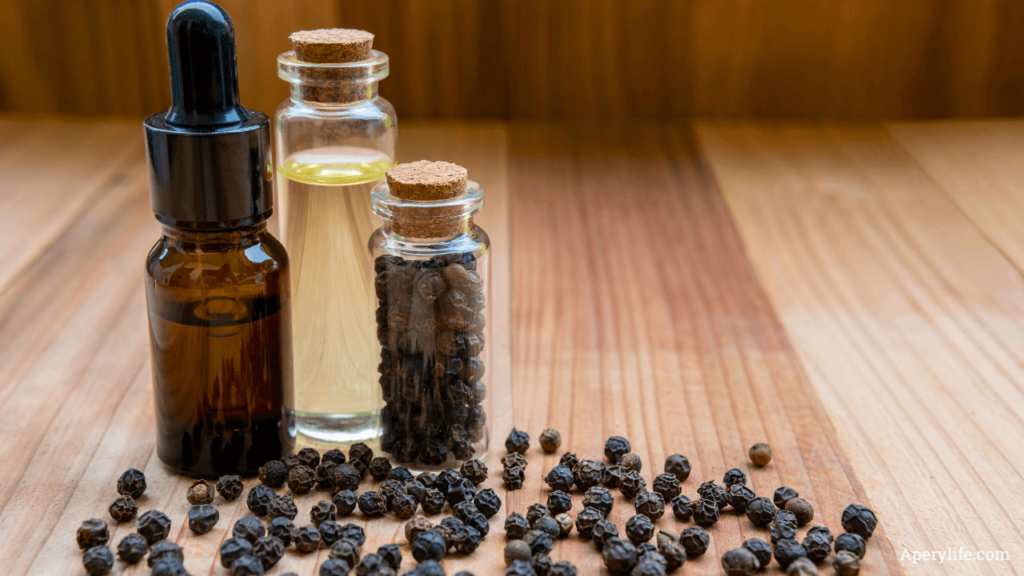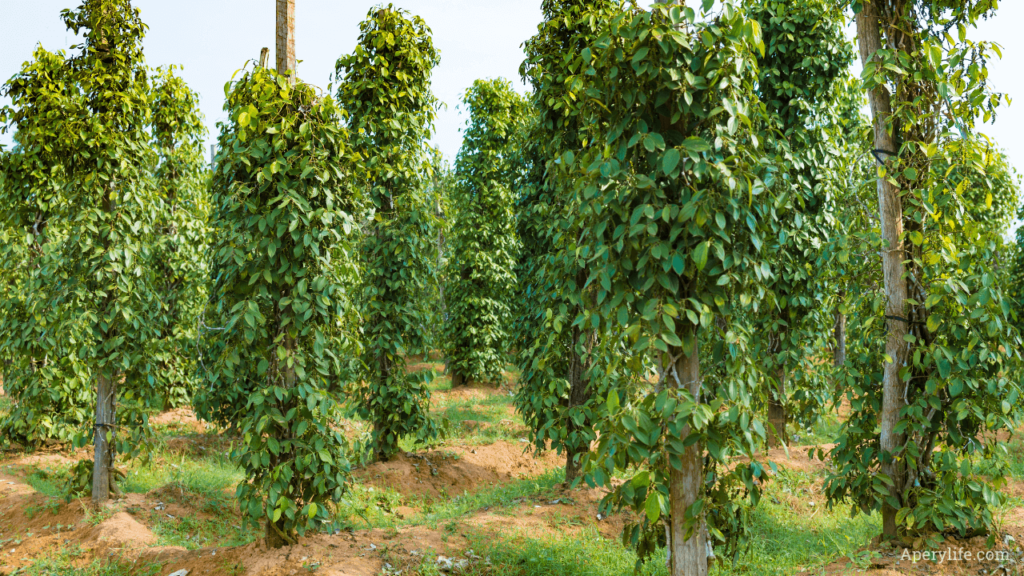Introduction
Black pepper (Piper nigrum) is one of the most well-known and widely used spices in the world, often called “black gold” for its historical and culinary significance. Originating from the Malabar Coast of India, black pepper has been one of the most valuable commodities in international trade for centuries. With its pungent aroma and slightly spicy flavor, black pepper is a staple in many cuisines and is appreciated not only for its contribution to flavor but also for its numerous health benefits.
Origins and History
Black pepper has a fascinating and ancient history. It was used by the Egyptians, Greeks, and Romans and was considered a luxury good and a form of currency. During the Middle Ages, black pepper was so valuable that it was used to pay taxes and tributes. Trade routes for pepper contributed to the discovery of new lands and the development of commerce between the East and the West. Today, black pepper is primarily cultivated in India, Vietnam, Indonesia, and Brazil.
Plant Characteristics
Black pepper is the fruit of the climbing vine Piper nigrum, which can reach up to 10 meters in height. The fruits are small berries, called drupes, which are harvested unripe and then sun-dried, giving them their characteristic dark, wrinkled appearance. The plant thrives in warm, humid climates and requires well-drained soil.
Types of Pepper
Although black pepper is the most common, the Piper nigrum plant can produce several types of pepper:
- Black Pepper: Harvested when the fruits are still green and unripe, then dried in the sun. It is the most pungent and strong-tasting pepper.
- White Pepper: Obtained by allowing the drupes to ripen fully and removing the outer skin. It has a milder and less pungent flavor than black pepper.
- Green Pepper: Harvested unripe like black pepper but preserved fresh, in brine, or quickly dried. It has a fresher and less spicy taste.
- Red Pepper: Obtained from the ripe fruits of the plant and preserved in brine, with a sweeter taste compared to other types.
Nutritional Properties and Health Benefits
Black pepper is not only a versatile spice in cooking but also offers several health benefits thanks to its bioactive compounds, particularly piperine:
- Improves Digestion: Piperine stimulates the production of gastric juices, aiding digestion and nutrient absorption.
- Antioxidant Effect: Black pepper is rich in antioxidants that help combat free radicals and protect cells from aging.
- Anti-inflammatory Action: It has anti-inflammatory properties that may help reduce inflammation in the body.
- Boosts Metabolism: Piperine helps stimulate metabolism, promoting weight loss and improving fat burning.
- Nutrient Absorption: Black pepper enhances the absorption of certain nutrients, such as beta-carotene and selenium, and boosts the effectiveness of curcumin, the active ingredient in turmeric.

Culinary Uses
Black pepper is an extremely versatile spice and can be used in numerous dishes to add flavor and depth:
- Universal Seasoning: An essential seasoning for meats, fish, vegetables, sauces, and soups. It pairs well with virtually any preparation, whether sweet or savory.
- Marinades and Sauces: Used in marinades to give meat a more intense flavor and in sauces to add a spicy note.
- Salad Enhancer: Freshly ground pepper adds a fresh and pungent note to salads and raw vegetables.
- Spiced Desserts: Sometimes used in small amounts in desserts, such as spiced cookies and dark chocolate, to create interesting contrasts.
How to Grow Black Pepper
Growing black pepper requires a tropical climate and specific conditions:
- Climate and Position: The black pepper plant grows best in warm, humid climates, with temperatures between 25°C and 30°C. It prefers filtered sunlight exposure and needs supports to climb.
- Soil: Prefers fertile, well-drained soil rich in organic matter. The soil should retain good moisture without waterlogging.
- Watering: Requires regular watering, especially during the dry season. The soil should be kept moist but not wet.
- Harvesting: Pepper fruits are harvested before they fully ripen, generally about 6-8 months after flowering. After harvesting, they are dried in the sun until they achieve their characteristic dark color and wrinkled texture.

Interesting Facts About Black Pepper
- Currency of the Past: Black pepper was so valuable that, in the past, it was used as currency. It was known as “black gold” and symbolized wealth.
- Symbol of Abundance: During the Middle Ages, having black pepper at home was a symbol of abundance and prestige.
- Mood Booster: Piperine in black pepper is believed to stimulate the production of endorphins, improving mood and reducing stress.
Conclusion
Black pepper is a spice that has stood the test of time, maintaining its importance in cooking and daily life. With its unmistakable flavor and numerous health benefits, black pepper truly deserves the title of “king of spices.” Whether enhancing a dish or aiding digestion, this spice remains one of the most versatile and cherished in the world.
All rights reserved © Copyright Aperylife.com